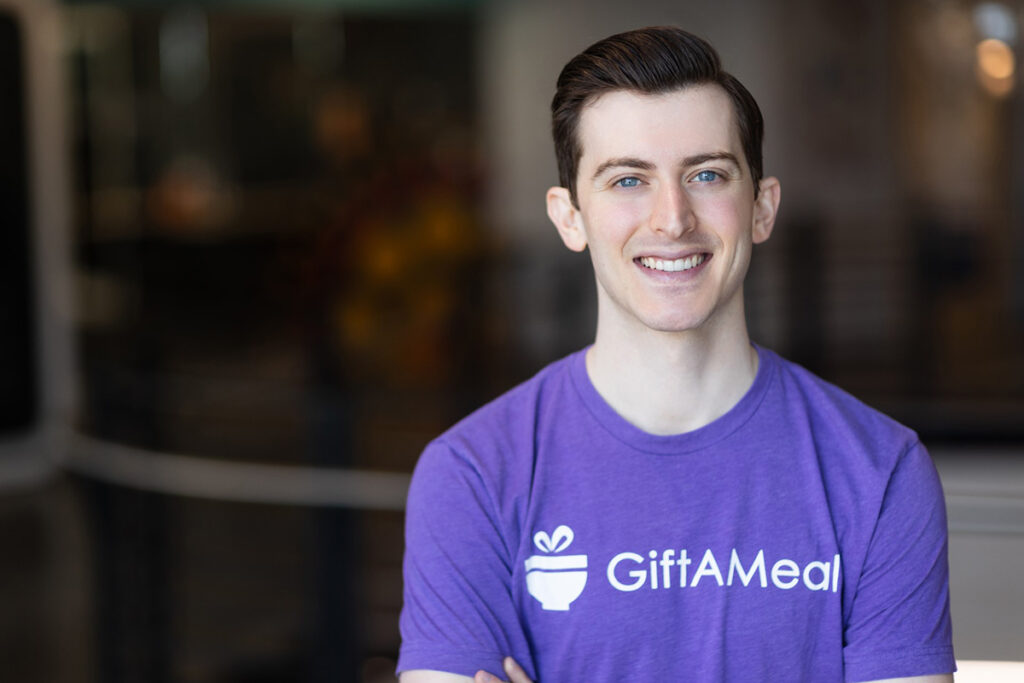Glantz is no stranger to giving back. As a student at WashU, he was community service chair for the social fraternity Tau Kappa Epsilon. He worked with a group called Computer Comfort as part of the business fraternity Alpha Kappa Psi, helping older adults acclimate to technology. He operated a non-profit storefront on the South 40. And he developed the startup that would become his fulltime job and passion, GiftAMeal: a cause marketing program for restaurants where diners upload photos of their meals and in return, GiftAMeal donates to a local food bank to give a meal to someone in need.

How do you give of your time for WashU?
In addition to the Eliot Society and the Alumni Board of Governors, I serve as a mentor for student entrepreneurs, and I have judged different pitch competitions. I’ve been a guest lecturer as well. I look for areas where it makes sense for me to be able to use my time and skills to best help the university. I was given a lot of university support, advice, energy, and resources to help grow GiftAMeal, so helping others to enjoy the same opportunities is something that I value. I think it’s really important to help support all the passions of different students.
What do you say to young alumni to encourage them to stay involved with the university?
Staying connected to the university is so important. For young alumni, it’s about what can the university continue to do for them post-graduation, whether it’s accessing career services, or even just accessing a social network for happy hours and events in their regions. I’ve learned so much from the advice and guidance I’ve gotten from other WashU alums through these connections.
I encourage other young alums to volunteer because it’s a great way to continue to build your network in your early career. Also, participating in university committees is great leadership experience for young alums who are career building and rounding out their portfolio of work experiences. Volunteering develops very transferable skill sets that I utilize on a day-to-day basis. Finally, it’s just good to do something outside of work that’s productive and gives you a sense of satisfaction that you’re making a positive difference.
Why is it important to support the Annual Fund?
I think that Annual Fund dollars are so important because they allow the university to have the flexibility to act on opportunities that are going to best help the students in the moment. It can be challenging when WashU is dealing in such big numbers to think, “How is this smaller-level donation going to make a difference?” There are so many opportunities that can be created through those unrestricted donations. They really add up.
Was there a time when you were a student when you saw Annual Fund dollars at work?
There were times at the beginning of GiftAMeal where I had opportunities to participate in pitch competitions. But to compete, I’d have to travel out of state and stay in a hotel. The Skandalaris Center, in some cases, was able to fund the trip for me, making it possible for me to win funding for GiftAMeal, which we really needed in those early stages. That kind of flexible, discretionary funding through Skandalaris from the Annual Fund was so beneficial.
What excites you about the future of WashU?
I think the level of innovation on campus and the willingness to try new programs and approaches is something that’s unique to WashU in higher education. I think that innovation is reflective in things like how much WashU has risen to be a top entrepreneurship school, or how WashU is looking to find new ways to be in St. Louis and work with and for the community. I’m so impressed by the continual development of new programs and approaches to support students, alumni, and the community.